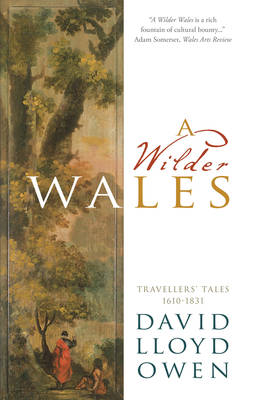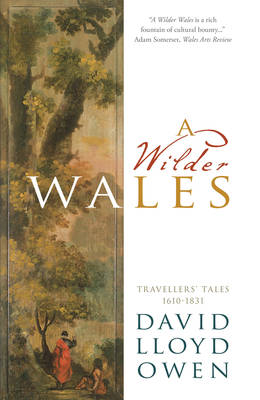
- Afhalen na 1 uur in een winkel met voorraad
- Gratis thuislevering in België vanaf € 30
- Ruim aanbod met 7 miljoen producten
- Afhalen na 1 uur in een winkel met voorraad
- Gratis thuislevering in België vanaf € 30
- Ruim aanbod met 7 miljoen producten
Zoeken
Omschrijving
Two hundred years ago, Wales was an all but forgotten corner of England. Travelling across its remote uplands between scattered settlements was often a challenge, as was entering a land close to home where few people outside its towns spoke English. It was rarely visited without good reason. A Wilder Wales introduces readers to the sheer breadth of experiences these travellers had, through extracts from 35 books, journals, and periodicals, written between 1609 and 1831. These accounts, ranging from jobbing writers, to a Duke's progress, include antiquarians, historians, and seekers of sublime scenery from the Wye Valley to the 'British Alps' of Mid and North Wales. A Wilder Wales highlights the astonishing transformation from a poor rural backwater to the crucible of the industrial revolution and how others saw the land and its people. These accounts describe the early days of mining, in Parys Mountain (Anglesey) and Ceredigion, as well as early coal mines in Pembrokeshire, and then cover the birth of metal refineries in Swansea, Merthyr, and across the Valleys. As well as describing the towns, countryside, and mountains, religion, customs, politics, and eating and drinking are discussed, along with a more open-minded consideration about Welsh language and culture than would emerge in later accounts.
Specificaties
Betrokkenen
- Auteur(s):
- Uitgeverij:
Inhoud
- Aantal bladzijden:
- 450
- Taal:
- Engels
Eigenschappen
- Productcode (EAN):
- 9781913640781
- Verschijningsdatum:
- 6/12/2021
- Uitvoering:
- Paperback
- Formaat:
- Trade paperback (VS)
- Afmetingen:
- 216 mm x 140 mm
- Gewicht:
- 512 g

Alleen bij Standaard Boekhandel
+ 41 punten op je klantenkaart van Standaard Boekhandel
Beoordelingen
We publiceren alleen reviews die voldoen aan de voorwaarden voor reviews. Bekijk onze voorwaarden voor reviews.











